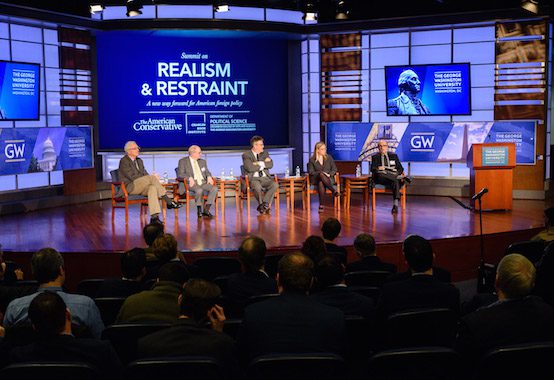Foreign Policy Restraint or a New Cold War?

Stephen Wertheim describes the rival camps that are fighting over the future of U.S. foreign policy:
Foreign policy hands are putting forward something like opposite diagnoses of America’s failure and opposite prescriptions for the future. One camp holds that the United States erred by coddling China and Russia, and urges a new competition against these great power rivals. The other camp, which says the United States has been too belligerent and ambitious around the world, counsels restraint, not another crusade against grand enemies.
Wertheim’s essay provides a valuable overview of the current debates over the proper U.S. role in the world. Advocates of restraint will benefit from reading the entire piece. It is fair to say that “advocates of restraint tend to become less vocal and unified when they turn beyond the Middle East,” but I submit that we have been so focused on U.S. policies in the Middle East because they have been among the worst, most destructive, and costliest of our policies overseas. He is also right that advocates of restraint “would benefit from taking a similarly global view if it is to advance a comprehensive alternative to the status quo.” However, as Wertheim understands, the core appeal of a strategy of restraint is that the U.S. will necessarily refrain from doing as much in as many places as it has done under the current strategy of primacy, so in many instances restraint doesn’t propose an alternative so much as it promises a halt to unwanted and unnecessary activity.
Great power competition will always be with us to one degree or another. It is as close to a permanent feature of international politics as one is likely to find. What distinguishes the competition camp that Wertheim identifies is a belief that the U.S. needs to confront both major authoritarian powers at the same time. The revival of Cold War rhetoric and framing is a major part of this. This not simply an acknowledgment of competition with Russia and China, but an argument for seeing relations with both of them as zero-sum rivalries. Insofar as this camp has a coherent strategy, it amounts to driving two of the world’s major nuclear-armed powers closer together in common cause against the U.S. as our government tries to pressure and “contain” both. The costs and risks of this strategy will inevitably be much greater, and if the U.S. pursues it consistently the potential for great power conflict increases dramatically.
It’s no secret that I think a strategy of restraint is the obviously preferable choice. If the practical alternative is pursuing something like another Cold War with all of its attendant dangers against a wealthier and more powerful rival, I have to think that most Americans will see the advantages in restraint as well.
Comments